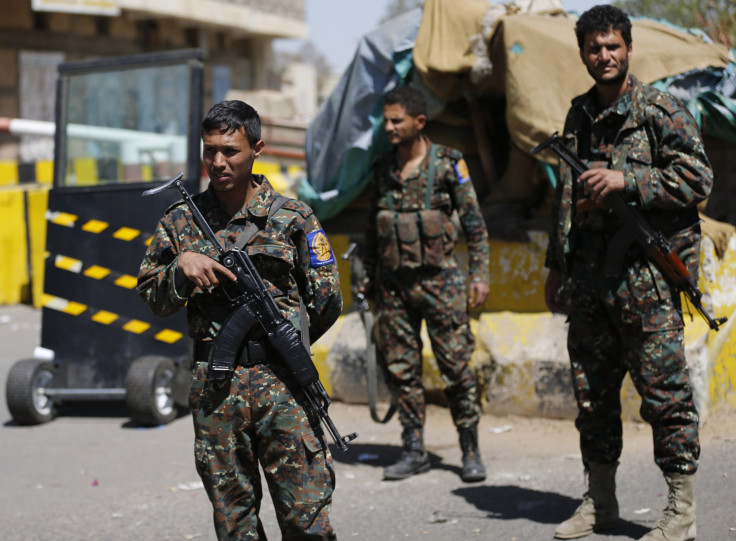US Embassy Closing In Yemen As Houthi Rebels Gain Power May Signal Permanent American Exit

Weeks after Yemen’s Shiite Houthi rebels forced the country’s U.S.-backed President Abed Rabbo Mansour Hadi to step down, U.S. diplomats have left the country -- and the American departure could be permanent.
The U.S. closed its embassy in Sanaa and evacuated all personnel from Yemen on Tuesday, citing security risks for Americans in the country after the Houthis dissolved parliament and put much of the country’s leadership under house arrest last week. As soon as U.S. officials left the capital, the Houthis seized more than 20 vehicles from the evacuated embassy, Reuters reported.
When the U.S. shut its embassy in Tripoli, Libya, last year, citing security concerns from that country's civil war, embassy personnel were evacuated but continued to work remotely, ensuring that the U.S. had not altogether left the country. But in Yemen, “all consular services, routine and/or emergency, have been suspended until further notice,” according to a State Department travel warning.
The Houthis, whose slogan reads, “God is the Greatest. Death to America. Death to Israel. Damn the Jew and Victory to Islam,” fiercely oppose U.S. involvement in the country. Still, some believe their desire to be seen as a legitimate political party supersedes their anti-Americanism, so they wouldn’t have violently ended their relationship with the U.S.
“In a movement you need a slogan that’s short and sharp. … They’re not going to do a slogan so people can shout, ‘Death to the American Policy in the Region, Death to Israeli Occupation of Palestinian Land.’ But do they mean to really kill Americans?" Hussain al-Bukhaiti, a pro-Houthi translator and journalist in Sanaa with close family connections to the group, told International Business Times after Hadi stepped down, but before the embassy closed.
Last year, Hadi’s government got $83.8 million in U.S. aid, nearly 27 percent of which was allotted “to promote and strengthen effective democracies in recipient states and move them along a continuum toward democratic consolidation,” according to ForeignAssistance.gov, a government site detailing U.S. foreign assistance.
The rebels are reportedly backed by Iran regime and are hoping to gain support from countries whose policies often align with Iran's, like Russia and China. Representatives from the two countries reportedly met with the rebel leader Abdul Malik al-Houthi last month, just days before Hadi was forced to step down.
Despite Hadi’s resignation, the U.S. continued its counterterrorism campaign that includes funding and training of Yemeni armed forces as well as drone strikes on al Qaeda in the Arabian Peninsula, the terrorist group’s Yemen-based branch. It is still unclear if drone strikes will continue if the Houthis remain in power, but the State Department said the U.S. would “continue to protect the American people, and we will not hesitate to act in Yemen to do so,” according to a statement on Tuesday.
AQAP is considered to be one of the greatest terrorist threats to the U.S. and one of al Qaeda’s strongest branches. It is also one of the biggest Muslim terrorist groups to publicly oppose the Islamic State group, or ISIS, which has seized large portions of Iraq and Syria. However, on Wednesday, several AQAP loyalists reportedly defected and pledged allegiance to ISIS leader Abu Bakr al-Baghdadi.
This year the Houthis began their own campaign to eradicate al Qaeda militants, who are Sunni Muslims, and they’ve succeeded with such speed that some of them are saying that they have been more effective than American drone strikes.
Some Houthis "think that America doesn’t really want to get rid of al Qaeda,” al-Bukhaiti said. “Because al Qaeda is the excuse to invade any country.”
© Copyright IBTimes 2024. All rights reserved.






















